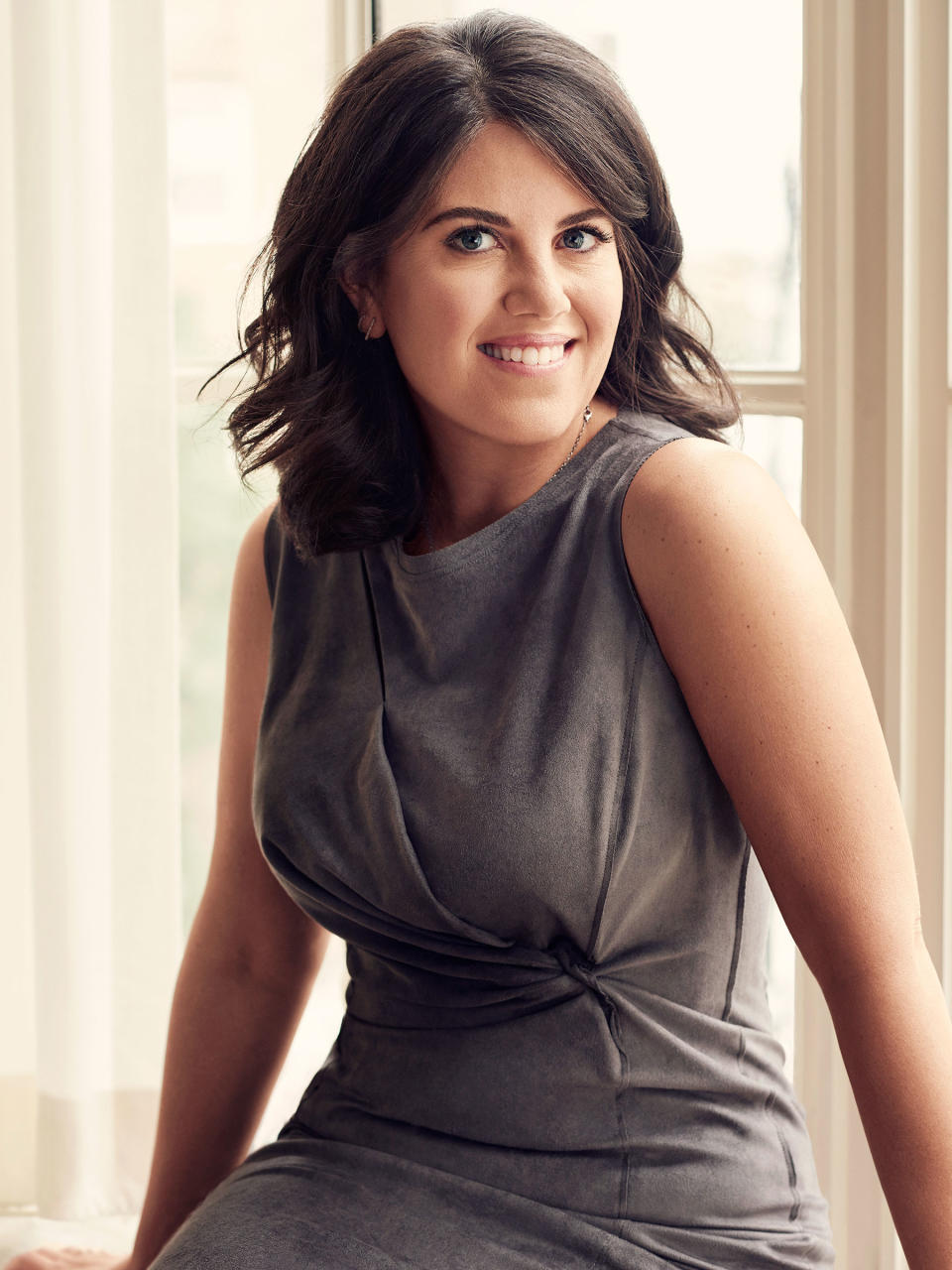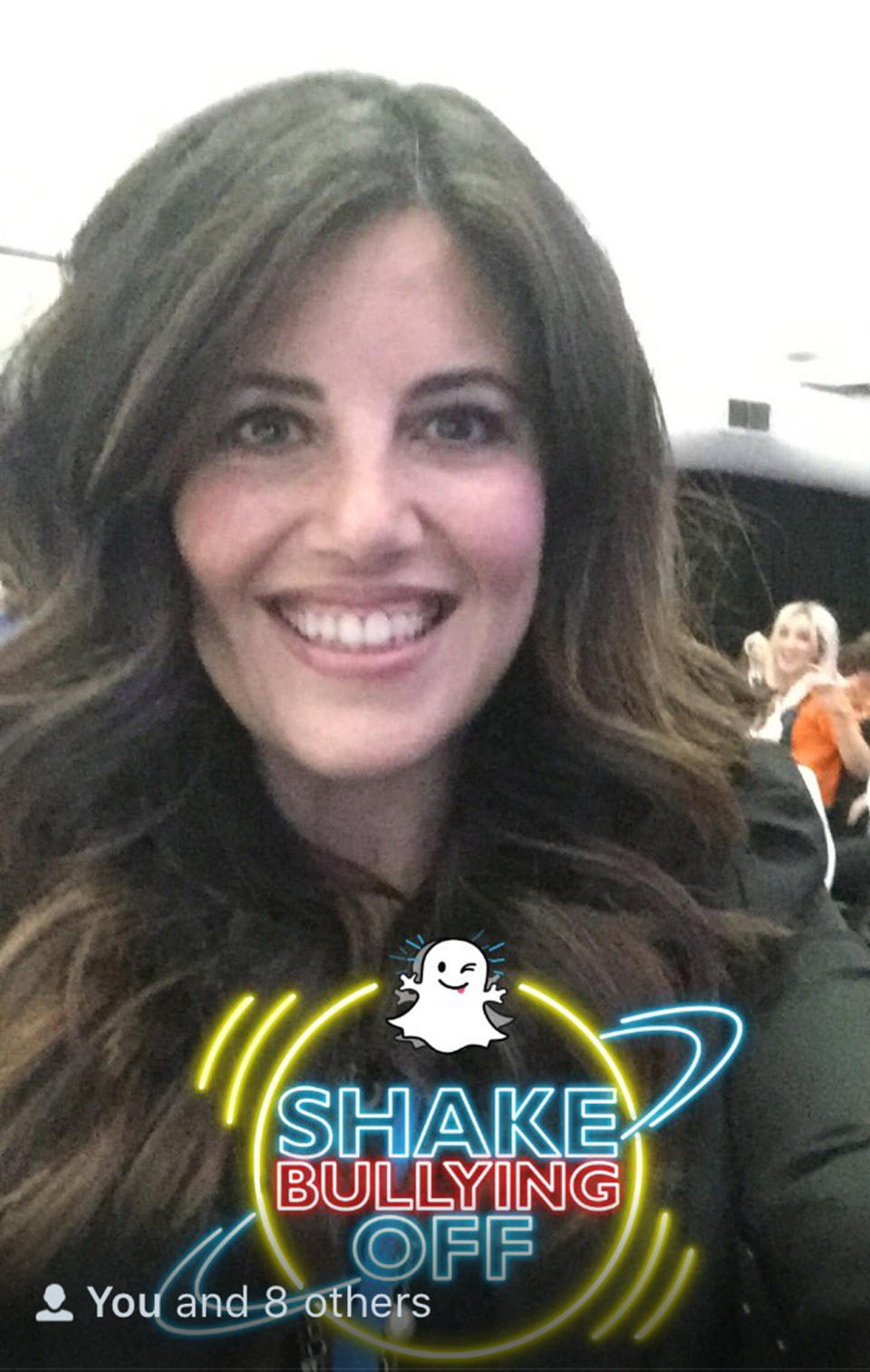'I'm Not a Punchline, I’m a Human Being': Monica Lewinsky Reflects on Clinton Scandal as She Debuts Anti-Bullying Video
When Monica Lewinsky first started thinking about making a PSA for Bullying Prevention Month, there was one thing she wanted to stress above all else: “I wanted to creatively demonstrate the difference between our online and offline behavior in a thought-provoking way.”
She would know.
Nearly twenty years ago, after prosecutor Kenneth Starr broadened his investigation of then-President Bill Clinton to include their affair, she became the target of not only of a federal investigation but also the subject of widespread ridicule online and many a cruel joke.
As she later described in her 2015 TED talk, (since viewed by nearly eleven and a half million times) “I was patient zero of losing a personal reputation on a global scale almost instantaneously.”
In recent years, after she broke her silence in a 2014 Vanity Fair essay, she’s found her voice as an anti-bullying activist.

As for the new PSA, she says, “We hired actors to reenact hateful cyberbullying posts that had been made on social media. We took those actors into public spaces. They engaged in these conversations almost as an improv, using the language which we had found online. And the footage captures people who had no idea that they were actors, then stepping in and standing up for people.”
As for how her own past played a role in its tone, she says, “I think that there are are probably hundreds of thousands, if not millions of horrible things, which have been said about me online and in print. But I can count on one, maybe two hands, how many times people have been rude to my face. That’s my own personal connection. When you are with someone, when you see someone face to face, you are reminded of their humanity.”
While much has changed for Lewinsky in recent years, she was once again targeted two weeks ago, when a Twitter user referred to her during the #TakeThe Knee protest. Yet this time, Monica did not stay silent and tweeted back: “Nothing funny about #taketheknee.”
shazamming all of you who retweeted + liked this tweet w/compassion + empathy. AND nothing funny about #TakeTheKnee. #PeacefulProtests ???????? https://t.co/PdrpiAdSQv
— Monica Lewinsky (@MonicaLewinsky) September 24, 2017
“There are many ways that I have been able to move forward but there are certainly times [like] with that meme that was going around, where I’m still held frozen in amber from incidents from two decades past,” she says of such moments. “It reminds me once again what it’s like to be on the other side. And it’s sometimes made worse when I know people I care about – especially my family—see these memes, too.”
Now, as part of this new campaign, she’s worked on the #bestrong emojis (a free download on iTunes and Google Play, built by Snaps) to help give others tools to fight back on the keyboard.
“Many people — especially young people — don’t know what to say when someone they know has been cyberbullied,” she says. “The two main images on the keyboard, one of a hugging heart, and the other is of grasping hands, were both designed with compassion and solidarity in mind, and they were chosen by over 5,000 teens from around the world.”

Lewinsky brought together a coalition of 12 anti-bullying or bullying prevention organizations, (emojis were made for each group, with their brand name and colors) such as The Bully Project, Sandy Hook Promise, The Tyler Clementi Foundation, The Childhood Resilience Foundation and Hollaback! “so that the people who engage with their work have a way of showing solidarity of using the emojis when they want to support someone, or they see bullying happening online,” she says. “It’s a free pro social tool to help people be upstanders online.”

These days, her work takes her all over the world, giving talks and often meeting with kids. On Oct. 17, she is working with the Diana Awards Anti Bullying Program and the Childhood Resilience Foundation for a day of anti-bullying awareness and training at a Philadelphia school.
She also recently wrote a foreword to Sue Scheff’s book, Shame Nation, on cyberbullying and public shaming, lamenting “a sad lack of empathy and compassion in our cyberworld.”
It’s something Lewinsky remains steadfastly committed to change, two decades after she found herself at the center of scandal.
“I’m not a punchline, I’m a human being and I belong to people,” she says. “I’m a daughter, I’m a step-daughter, I’m a sister, I’m a cousin, a niece, an aunt. I’m dimensional, not just a punchline.”

